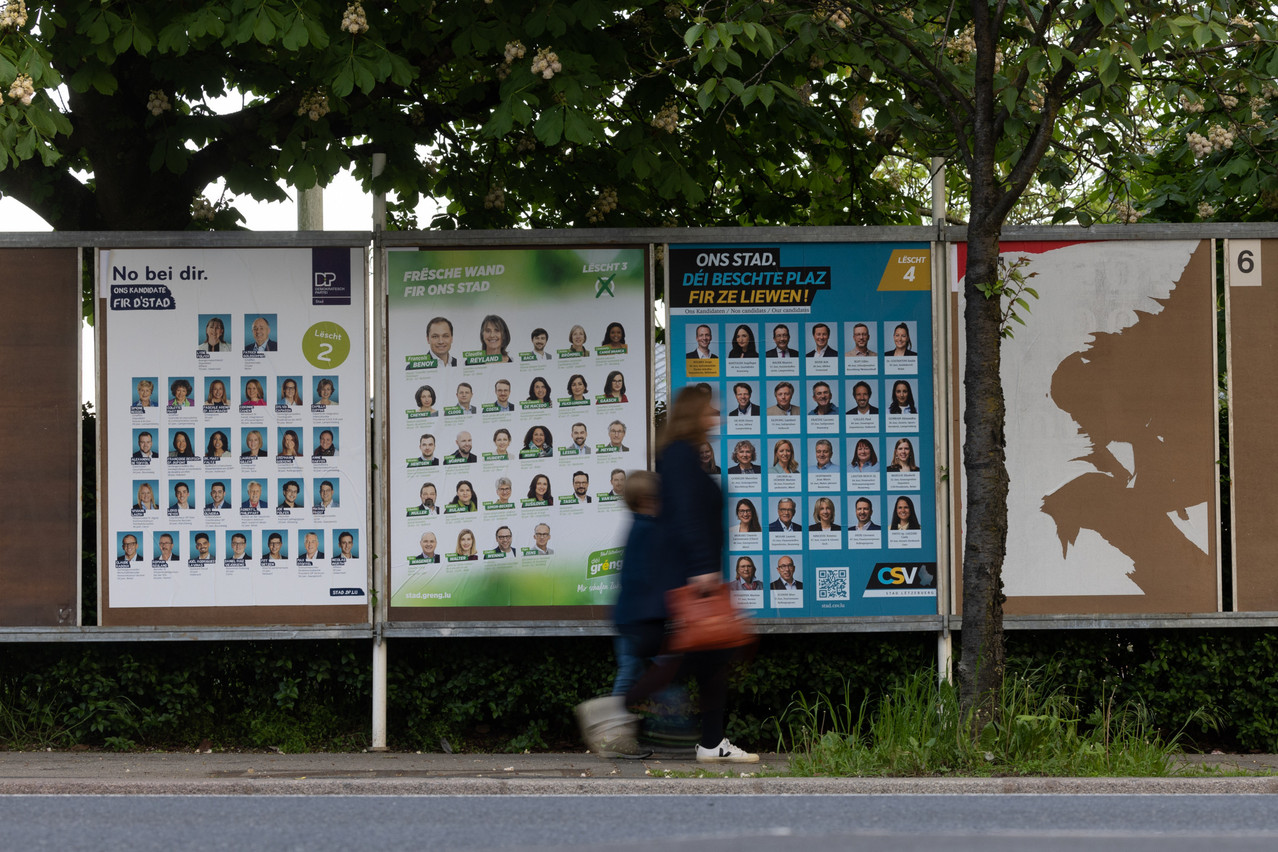Sunday 14 May marked the start of the ‘unofficial’ campaign for candidates in the municipal elections. ‘Unofficial’ in the sense that the major parties--LSAP, DP, déi Gréng, CSV, Pirates, déi Lénk, ADR, Fokus and Volt--had decided to start their propaganda campaigns . The ‘fair election deal’ did not prevent a few election posters from springing up here and there, and a few leaflets appearing in mailboxes before the agreed date.
Read also
The other commitment made was to have a “fair and factual” campaign. This seems to be the case so far. Generally, communal elections are personal elections. Voters generally decide more on personalities than on programmes. They are elections of proximity, almost interpersonal relations. Especially in the smallest municipalities, where everyone knows everyone else. The parties’ policy platforms take second place. It’s no coincidence that the DP, for example, has developed a framework programme for the local elections, detailing a number of proposals that the candidates are free to adopt. Or not.

Official campaign posters seen in Luxembourg City, 14 May 2023. Photo: Guy Wolff/Maison Moderne
The programme will be used again this summer for the parliamentary elections. The particularity of the June municipal elections is that they are held in the same year as the general elections, scheduled for 8 October. This is a situation that can only occur in principle every 30 years. The term of office of a member of parliament is five years, while that of a local councillor is six years. The last time the two elections were held in the same year was in 1999. And if the two elections are held this year in 2023, it is because the 2013 legislative elections were called early by Jean-Claude Juncker, who was entangled in the Srel spy agency affair. And in 1999, the legislative elections were held on 13 June and the communal elections on 10 October.
Stepping stone vote
The proximity of the two elections will give certain ‘national’ issues more resonance, such as housing and, more broadly, urban planning, security and the fight to preserve the climate. These are issues on which the municipalities are in the front line without having the financial and legal means to carry out their policies.
Read also
With the communal elections taking place before the legislative elections, this may also have an impact on the constitution of candidate lists for the legislative elections. The results of each party are likely to influence the constitution of the lists in the event of the emergence of new ‘locomotives’. This raises the question of whether the candidates elected in the communal elections will not be called upon, as soon as they are installed, to take up other functions in the Chamber of Deputies, or even to resign their mandates for a ministerial post.
Meanwhile, according to the Ministry of the Interior, 1,483 women (38.55%) and 2,364 men (61.45%) are standing for local office. 3,468 (90.15%) are of Luxembourg nationality against 379 non-Luxembourgers (9.85%). They will compete for the votes of the 252,464 registered voters. Of these, 50,084 are non-Luxembourg residents, i.e., 19.8% of the potential number of such voters who could have registered.
Read the original French version of this article on the site
